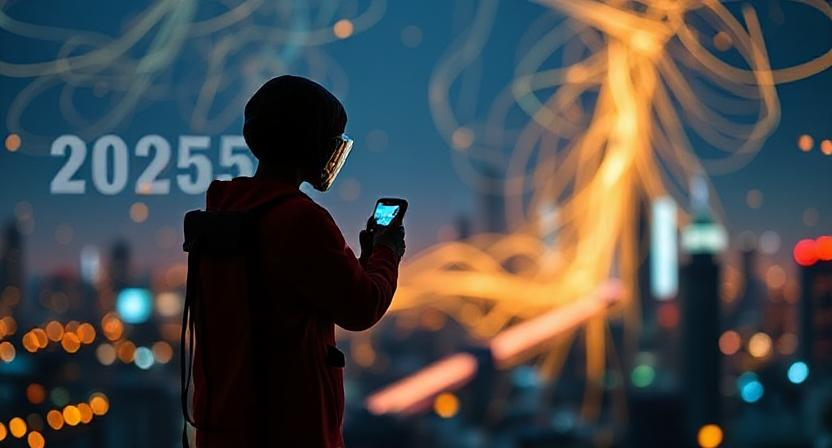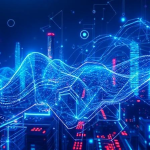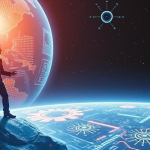The year 2025 has ushered in a new era of technological advancements, bringing with it innovations that have transformed industries, reshaped the workforce, and altered the way we live our daily lives. From artificial intelligence (AI) breakthroughs to quantum computing milestones and the rapid evolution of the metaverse, the world is experiencing an unprecedented tech boom. But what exactly is happening, what can we expect next, and how does this affect you? Let’s dive in.
What’s New in 2025?
1. AI Becomes Ubiquitous and More Autonomous
Artificial intelligence has reached new heights in 2025, with generative AI models now operating at near-human intelligence levels. AI-driven assistants are no longer just tools for answering basic questions but have evolved into fully functional virtual employees, capable of managing projects, writing reports, and even making executive decisions.
In healthcare, AI-driven diagnostics are now outperforming human doctors in detecting diseases at early stages. Robotics powered by AI have also significantly improved elderly care, offering companionship and medical assistance with unparalleled efficiency.
2. Quantum Computing Hits a Milestone
Quantum computing has transitioned from theoretical experimentation to practical application. Companies like IBM, Google, and emerging startups have successfully developed quantum processors capable of solving complex problems in seconds that would take traditional supercomputers years.
This breakthrough has significant implications for cybersecurity, pharmaceutical research, and climate modeling. With quantum encryption, cybersecurity threats are being mitigated at an unprecedented rate, offering enhanced protection for financial transactions and sensitive data.
3. The Metaverse Becomes Mainstream
The metaverse has evolved from a niche digital playground to a fully integrated virtual society. With improvements in augmented reality (AR) and virtual reality (VR), workplaces, educational institutions, and social gatherings have migrated to immersive environments. Companies now conduct business meetings in the metaverse, offering employees a global workspace without the need for physical offices.
Meanwhile, metaverse-based education has transformed learning, allowing students to explore historical events, conduct scientific experiments, and practice hands-on skills in a virtual setting.
4. The Next Generation of Smart Homes and Cities
Smart homes in 2025 have become even more intelligent, featuring self-sustaining energy systems powered by AI. Home automation now extends beyond lighting and temperature control, incorporating AI-driven personal assistants that anticipate household needs and automate daily tasks.
Cities are also becoming smarter, with AI-powered traffic control systems reducing congestion, smart grids optimizing energy distribution, and automated waste management improving sustainability efforts.
5. Advancements in Space Exploration
Private and governmental space agencies have made significant progress, with space tourism becoming a viable industry. SpaceX, Blue Origin, and other competitors have launched commercial flights, allowing civilians to experience space travel.
Meanwhile, NASA and its partners are advancing their missions to establish human settlements on Mars, fueled by AI-driven robotics and new propulsion technologies that shorten travel times.
What’s Next?
1. AI-Powered Creativity and Innovation
With AI becoming more sophisticated, we can expect machines to contribute creatively in ways previously reserved for humans. AI-generated music, literature, and art are becoming indistinguishable from human-created works. This raises ethical and legal questions regarding intellectual property and the role of human creativity in the digital age.
2. The Rise of Brain-Computer Interfaces (BCIs)
Elon Musk’s Neuralink and other biotech firms are pioneering brain-computer interfaces, allowing individuals to control devices with their thoughts. BCIs have the potential to revolutionize medicine, particularly for individuals with disabilities, by restoring mobility and communication capabilities.
3. Sustainable Tech Innovations
As concerns over climate change intensify, technology is focusing on sustainability. Renewable energy sources like solar and wind power are becoming more efficient and affordable. AI-driven climate modeling is helping predict and mitigate natural disasters, and bioengineered materials are replacing plastics, reducing environmental impact.
4. The Next Evolution of 5G and the Rise of 6G
While 5G networks have already revolutionized connectivity, researchers are pushing toward 6G, promising even faster speeds and near-zero latency. This advancement will enable real-time holographic communication, further blurring the lines between physical and digital interactions.
5. Biotechnology and Genetic Engineering Breakthroughs
CRISPR and other gene-editing technologies are making significant strides. Personalized medicine is now a reality, with treatments tailored to an individual’s genetic makeup. Scientists are also exploring the potential of extending human lifespans, raising philosophical and societal debates about the implications of longevity.
What It Means for You
1. Job Market Disruptions and Opportunities
With AI automating many tasks, traditional job roles are evolving. While some jobs are being replaced, new opportunities in AI ethics, quantum computing, and cybersecurity are emerging. Upskilling and continuous learning will be crucial for individuals to remain competitive in this rapidly changing landscape.
2. Enhanced Convenience and Quality of Life
Daily life is becoming more convenient, with AI personal assistants handling schedules, smart homes managing household chores, and autonomous vehicles reducing the need for manual driving. Healthcare advancements mean earlier disease detection, personalized treatments, and better overall wellness.
3. Privacy and Security Concerns
As technology advances, so do privacy concerns. The widespread adoption of AI, biometrics, and digital identities raises questions about data security. Individuals must stay informed about digital rights, encryption methods, and best practices for safeguarding personal information.
4. Ethical Considerations and Regulation
Governments and organizations are grappling with the ethical implications of AI decision-making, genetic editing, and digital identities. Regulations are being put in place to ensure responsible technology use, but ongoing discussions will shape how these advancements are integrated into society.
5. A More Connected World
The expansion of high-speed internet, satellite-based networks, and global connectivity means that even remote areas have access to digital resources. This opens doors for education, business, and communication on an unprecedented scale, bridging the digital divide.
Final Thoughts
The tech boom of 2025 is reshaping the world in ways that were once thought to be science fiction. From AI-driven workplaces to brain-computer interfaces and the expansion of the metaverse, the opportunities are limitless. However, with these advancements come challenges that must be navigated carefully, including privacy concerns, job displacement, and ethical dilemmas.
The key to thriving in this rapidly evolving landscape is adaptability. Staying informed, upskilling, and embracing new technologies while being mindful of their implications will be essential. The future is here, and it is being shaped by the very innovations that define the tech boom of 2025.






Leave a Reply